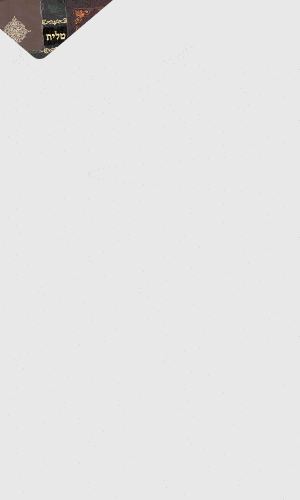Bo: Moshiach ‘Comes’ To Bring The Light Of Hashem To All Of Us
From the desk of Rabbi Nissim Lagziel, Mashpia in Oholei Torah: The first verse in our parsha, Bo, tells of G-d’s command to Moshe to go to Pharaoh. G-d informs him that Pharaoh won’t listen to him, “because I’ve hardened his heart and the heart of his servants in order that I may place these, My signs, among them.” Then why should Moshe go to Pharaoh? Rashi says, “and warn him.” But this doesn’t sit well because if Pharaoh won’t listen in any case, why should Moshe go and warn him? • Full Article
By Rabbi Nissim Lagziel, Mashpia in Oholei Torah
BEGIN WITH A GRIN
A supervisor from the Health Ministry visited one of the insane asylums in the area. He made the rounds with the director and in one room he saw a full bathtub and next to it a plastic spoon and a disposable cup.
The supervisor asked the director, “What’s that for?”
The director said, “It’s an entrance exam. People are brought here and asked to empty the bathtub. Based on their answer we see whether they need to be admitted or not.
The supervisor liked the idea and said, “Good! I suppose the smart ones take the cup and use it to empty the tub of water.”
Said the director, “The normal ones remove the plug from the drain. Which room would you like – with a view of the ocean or without?”
DON’T GO – COME
The first verse in our parsha, Bo, tells of G-d’s command to Moshe to go to Pharaoh. G-d informs him that Pharaoh won’t listen to him, “because I’ve hardened his heart and the heart of his servants in order that I may place these, My signs, among them.” Then why should Moshe go to Pharaoh?
Rashi says, “and warn him.” But this doesn’t sit well because if Pharaoh won’t listen in any case, why should Moshe go and warn him?
Furthermore, parshas Bo is the parsha when we left Egypt. The name of the parsha is supposed to represent the contents of the parsha, our leaving Egypt. How does “Bo” reflect the idea of redemption? It would seem the opposite is true, that the name “Bo” indicates that Moshe was in a lowly position relative to Pharaoh. Moshe needs to go to Pharaoh, while Pharaoh does not need Moshe. Pharaoh is in his palace, sitting on his throne, surrounded by guards and wealth, and Moshe needs to go and plead with him to listen the word of G-d.
We must say that this mission to Pharaoh has something else to it, something secret which will explain what we have asked above. It will also inform us what we can learn from this in connection to the Geula. This hidden aspect can be found in the words of the Zohar at the beginning of our parsha. The Zohar asks, why does G-d say to Moshe, “Come to Pharaoh” rather than “Go to Pharaoh.” The word “come” is more appropriate when you want to call someone over to where you are. If you want to send someone somewhere, it’s more appropriate to say “go.”
The Zohar explains that Moshe was afraid to go alone to Pharaoh and G-d informed him that He would go along with Moshe. He is already there and Moshe just needs to enter! Why was Moshe afraid of this wicked man Pharaoh? The Zohar explains that Pharaoh represents a lofty revelation of G-dliness that is beyond all bounds and reason. The word “periah” in Lashon Kodesh means a revelation through uncovering (as in the periah done at a bris mila). Pharaoh, in his supernal source, represents an infinite revelation that Moshe could not contain which is why G-d said to him, “Come to Pharaoh,” I am with you. With these words, G-d gives Moshe special strength so his physical body can contain this lofty revelation and remain alive.
That was the real goal, according to Chassidic teachings, for this assignment to Moshe; not just to warn Pharaoh, but to receive something. On this mission, Moshe received the strength to rise about the bounds of nature and reason, to rise up to a state of Geula, a state in which the reality of the world means nothing, and through this wondrous, infinite power he can do what no man had ever done: take the Jewish people out of Egypt!
Which word alludes to this wondrous power of bringing the Geula? The word “Bo.” This little word represents G-d’s being with Moshe in the most difficult circumstances, which is what gives him the strength… to be redeemed and to redeem!
The question then is, why just Moshe? What about the rest of the Jewish people? They don’t deserve such a G-dly revelation?
COME ONE, COME ALL
This is precisely the secret of the funnel. Just as you can’t pour juice from a bowl into a narrow bottle, and you can’t explain quantum physics to a five-year-old, so too, an ordinary Jew cannot receive this lofty, G-dly revelation. A “funnel” is needed or, in the language of Chassidus (in connection to Moshe and the Jewish leaders who followed him, until Moshiach), a “memutza ha’mechaber” – a connecting intermediary.
Chassidus explains that between these two distant levels there needs to be an intermediary to connect them. Every intermediary needs to contain polar opposites, upper and lower, like a funnel which is narrow on one side and wide on the other. Moshe was “the funnel.” Our Sages declare that he was “a man in his lower half and G-d-like in his upper half” – a human being who lived in our world but was bound to G-dliness so that it could be said about him that his upper half was Elokim. He is the one who can bring the infinite revelation to limited, Jewish souls.
Our Sages teach us that “the first redeemer is the final redeemer.” The secret of the funnel who is Moshe is the secret of the funnel who is Moshiach. The ability to connect this physical world with G-d Himself so that it becomes a dwelling for G-d is only through the power of Moshiach.
Moshiach is a connecting intermediary. On the one hand, he is a king from the House of Dovid, a human being born of a mother and father. On the other hand, he is connected and belongs to the highest spiritual level as our Sages say that Moshiach’s soul is even loftier than that of Adam’s! It is specifically Moshiach who can execute this supreme connection in the most complete way!
TO CONCLUDE WITH A STORY
We will end with a story about an encounter with a Pharaoh of our generation which could take place solely on the shlichus of the Rebbe. It was 1979, a year after the Iranian Revolution. The Iranians took the American embassy employees in Iran hostage and the entire world was focused on the drama. After much effort on the part of the UN, the Iranians agreed to allow a visit by a small group of religious people. The Rebbe used his influence so that the chief rabbi of Mexico, Rabbi Abraham Hershberg was chosen since the Iranians did not want any Americans or Israelis.
Some tried to dissuade him from traveling to Iran at such a sensitive moment, so he decided to consult with the Rebbe. Before he agreed to accept the invitation, he consulted the Rebbe and spoke of his concerns. The Rebbe urged him to make the trip and reminded him to also bring some candles so as to light the menorah with the Jewish hostages for the upcoming holiday of Chanukah.
This was somewhat puzzling to Rabbi Hershberg, because he had no idea if there were actually any Jews among the embassy staff, and also Chanukah was more than two months away and he thought he would have returned long before that.
In the end, the trip was delayed to two days before Chanukah.
The visit to the besieged embassy was set for the gentile winter holiday, which that year coincided with Chanukah. Rabbi Hershberg inquired and was told that there was one Jew, but it turned out that there were actually six Jews there. The Jews were overcome by a rabbi making a special visit to them, with a menorah, no less. They were even more excited when they heard that in New York there is a rabbi who knew about them and wanted the menorah to be lit with them.
The day after their visit, the clergymen were invited to the mass Friday prayers in the main mosque of Tehran with the Supreme Leader Ayatollah Khomeini in attendance. At one point, the congregation all knelt and then bowed down in prayer — except for Rabbi Hershberg and an Iranian rabbi, Rabbi Yedidia Ezrahian. Afterwards, an irate cleric asked, “Why didn’t you show us respect?” Why didn’t you bow down like the priests did?”
“Those priests come from Syria and Lebanon and know Arabic,” Rabbi Hershberg explained. “But I don’t understand what is being said. Our Torah commands us, ‘do not prostrate yourselves,’ so how can I bow if I don’t know what I’m bowing for?”
The mullah walked off, but shortly thereafter, he returned. “The Ayatollah has requested your audience.”
The two rabbis went to Khomeini.
“Give the other rabbi my thanks,” said Khomeini, to R’ Ezrahian, “for not trying to ingratiate yourselves. I respect that you acted in accord with your faith.”
When he translated this to Rabbi Hershberg, he shot back: “This is a golden opportunity! Ask him for a few minutes to talk about the needs of Iranian Jews.”
Incredibly, the Islamic leader invited the rabbi to his home in the holy city of Qom. The rabbi pleaded with the Ayatollah to stop persecuting the Jews of Iran. Khomeini agreed.
A few months later, in the Hebrew month of Elul, a curfew was announced in Tehran during the tumult of the revolution. In Elul, Jews customarily leave their homes before daylight every morning to recite special prayers of repentance. Khomeini issued a decree that Jews who carried a tallis and tefillin would be allowed to leave their home at 4am so they could say the Selichos prayers in the shul.
“Only on my flight back I started to grasp what I had just experienced and understand the Rebbe’s far-reaching vision,” Rabbi Hershberg added.
“I was not so surprised by his knowing I would be there on Chanukah, as I was of his sense of responsibility and love for Jews he had never met and his courage to send me there. We are blessed to have such a leader.”
Good Shabbos!
50
Join ChabadInfo's News Roundup and alerts for the HOTTEST Chabad news and updates!








































